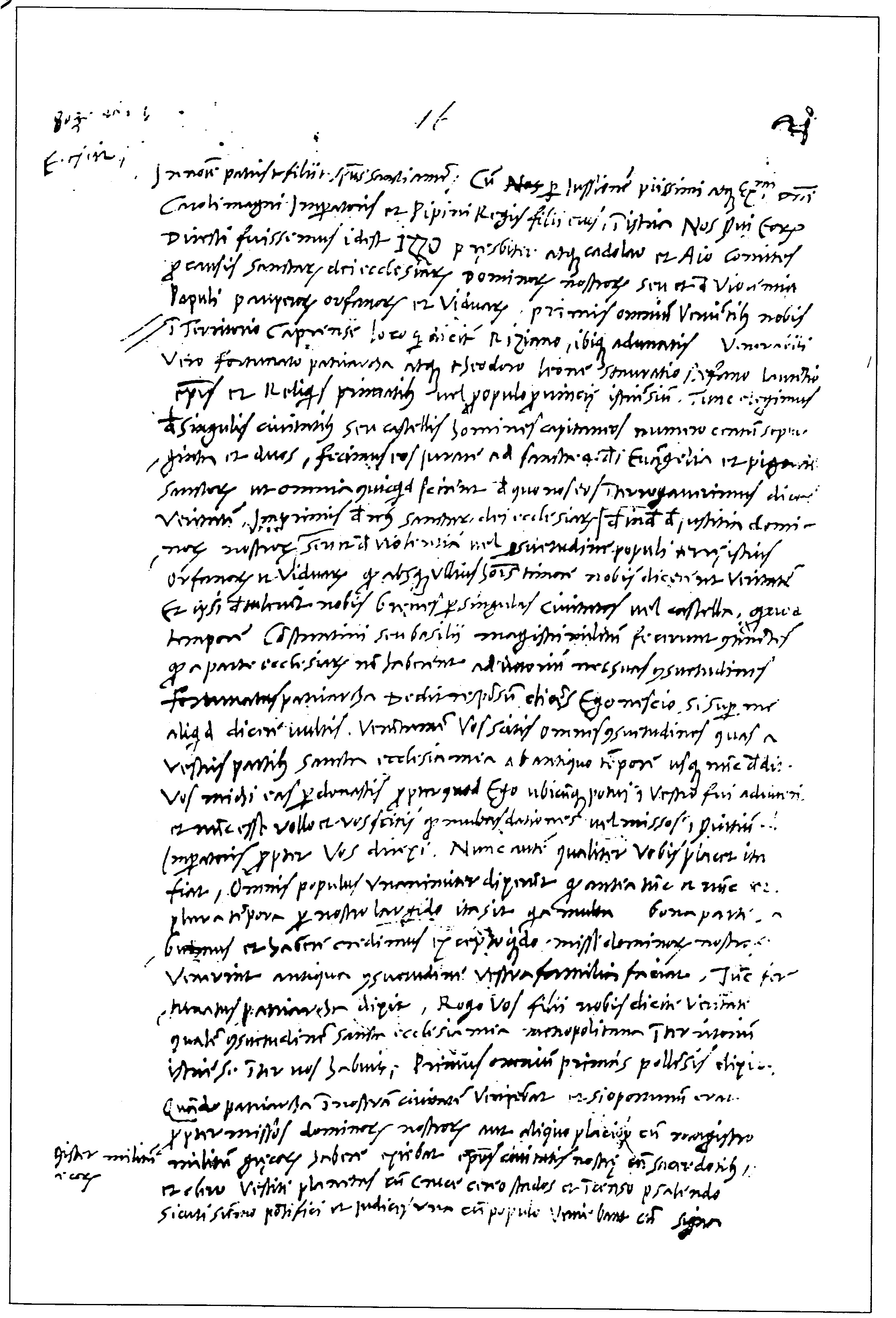Placitum of Riziano on:
[Wikipedia]
[Google]
[Amazon]
 The Placitum of Riziano ( it, Placito del Risano; sl, Rižanski zbor) was a dispute that took place c. 804 around the river Riziano, probably at Rižana in modern
The Placitum of Riziano ( it, Placito del Risano; sl, Rižanski zbor) was a dispute that took place c. 804 around the river Riziano, probably at Rižana in modern
 The Placitum of Riziano ( it, Placito del Risano; sl, Rižanski zbor) was a dispute that took place c. 804 around the river Riziano, probably at Rižana in modern
The Placitum of Riziano ( it, Placito del Risano; sl, Rižanski zbor) was a dispute that took place c. 804 around the river Riziano, probably at Rižana in modern Slovenia
Slovenia ( ; sl, Slovenija ), officially the Republic of Slovenia (Slovene: , abbr.: ''RS''), is a country in Central Europe. It is bordered by Italy to the west, Austria to the north, Hungary to the northeast, Croatia to the southeast, an ...
. The document is important for the history of Capodistria ( Koper) and Trieste
Trieste ( , ; sl, Trst ; german: Triest ) is a city and seaport in northeastern Italy. It is the capital city, and largest city, of the autonomous region of Friuli Venezia Giulia, one of two autonomous regions which are not subdivided into prov ...
, because it is the first written
Writing is a medium of human communication which involves the representation of a language through a system of physically inscribed, mechanically transferred, or digitally represented symbols.
Writing systems do not themselves constitute h ...
evidence of the presence of Slavic-speaking population in Istria close to Trieste
Trieste ( , ; sl, Trst ; german: Triest ) is a city and seaport in northeastern Italy. It is the capital city, and largest city, of the autonomous region of Friuli Venezia Giulia, one of two autonomous regions which are not subdivided into prov ...
.
Legates sent by Charlemagne
Charlemagne ( , ) or Charles the Great ( la, Carolus Magnus; german: Karl der Große; 2 April 747 – 28 January 814), a member of the Carolingian dynasty, was King of the Franks from 768, King of the Lombards from 774, and the first ...
heard complaints by the leaders of Istria about the bishops and the duke of Istria, John. The document is believed to have been recorded on the orders of Fortunatus II, patriarch of Grado
This is a list of the Patriarchs of Grado (north-eastern Italy).
''
online
English translation: C. West, 'In The Time of the Greeks'
Turbulent Priests
/ref>
''
townspeople
The bourgeoisie ( , ) is a social class, equivalent to the middle or upper middle class. They are distinguished from, and traditionally contrasted with, the proletariat by their affluence, and their great cultural and financial capital. T ...
to fish) only affected the coast.
The Latin text has been edited many times, but the standard edition is by Manaresi. The text has been translated into various modern languages.French translation: Ph. Depreux, ''Les societes occidentales du milieu du VI a la fin du IX siecle'' (Rennes, 2002), pp. 293-99online
English translation: C. West, 'In The Time of the Greeks'
Turbulent Priests
/ref>
References
Further reading
* F. Borri, 'Neighbours and relatives: the plea of Rizana as a source for Northern Adriatic elites', ''Mediterranean Studies'' 17 (2008),1-26 * T. S. Brown, ''Officers and Gentlemen and Officers: Imperial Administration and Aristocratic Power in Byzantine Italy, A.D.554-800'' (London, 1984) * J. Davis, ''Charlemagne’s Practice of Empire'' (Cambridge, 2015), pp. 102–4, 274-7 * M. Innes, ‘Framing the Carolingian Economy’, ''Journal of Agrarian Change'' 9 (2009), 42-58. History of Istria 804 City Municipality of Koper Popular assemblies Medieval politics Legal disputes {{Europe-hist-stub